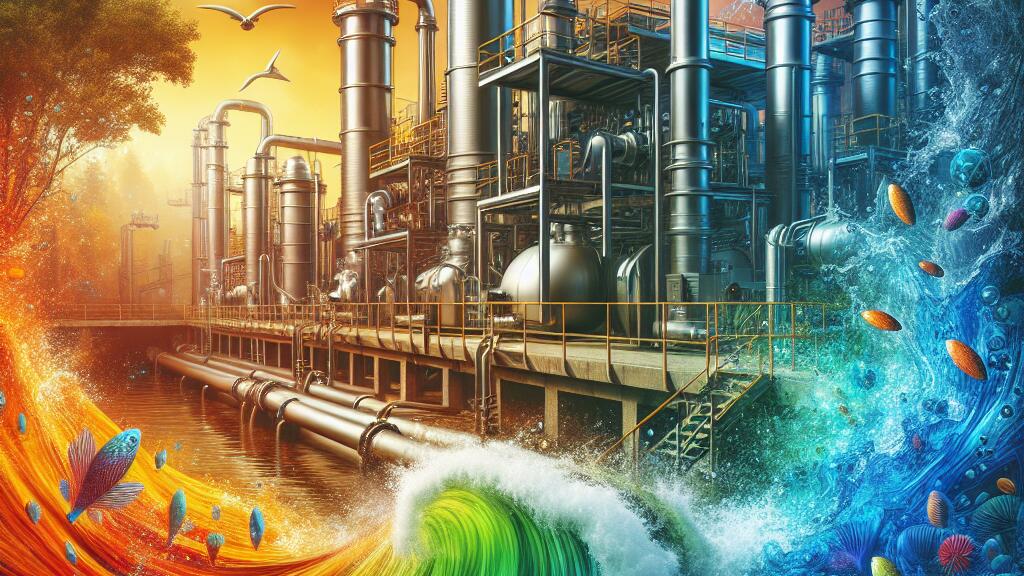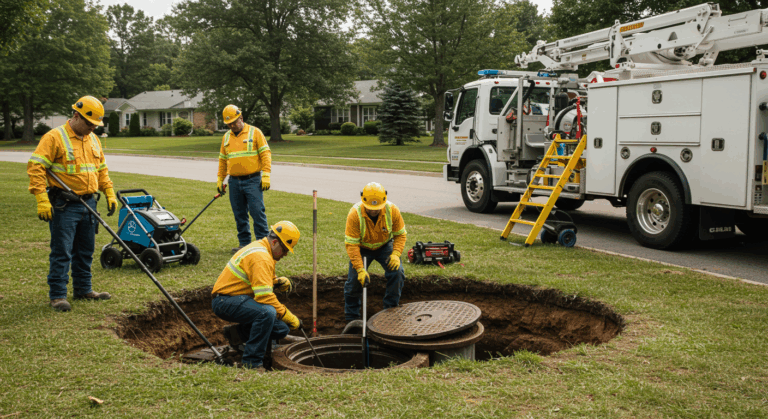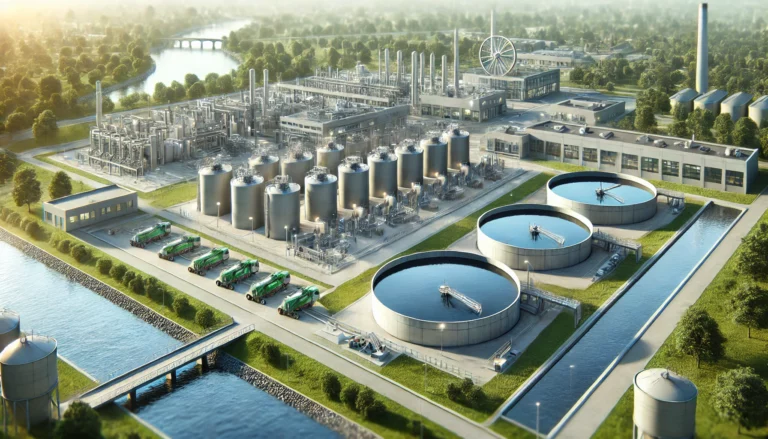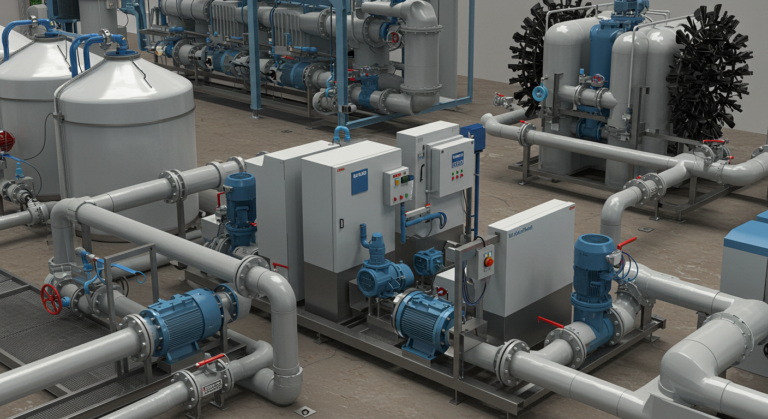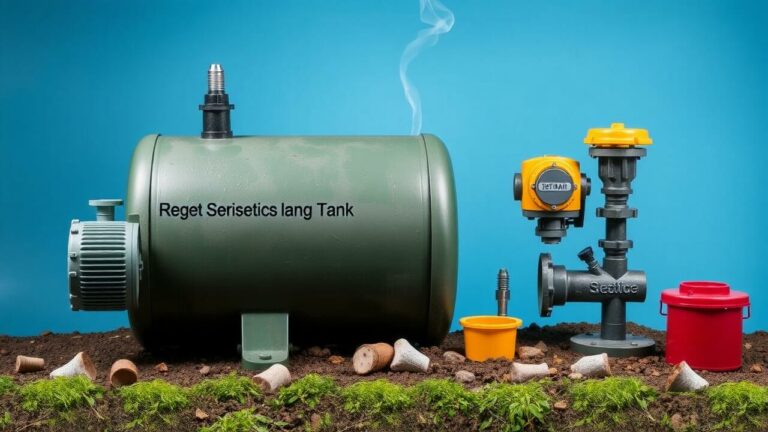Wastewater Equipement | The Essential Guide to Wastewater Equipment for Effective Treatment Solutions
Wastewater Equipement | Overview of Wastewater Equipment
Wastewater equipment plays a crucial role in the effective management and treatment of both domestic and industrial wastewater. The complexity of wastewater treatment processes necessitates various types of equipment designed to handle untreated wastewater and facilitate its transformation into reusable water. Advanced wastewater treatment technologies enhance the efficiency of wastewater treatment facilities, allowing for the safe recycling and reuse of wastewater. In the context of industrial wastewater treatment, specialized wastewater equipment targets the unique challenges posed by pollutants found in industrial processes. Effective operation of these systems not only protects public health but also contributes to environmental sustainability by minimizing the impact of untreated wastewater on ecosystems.
wastewater equipement | Importance of Wastewater Treatment
Wastewater treatment plays a crucial role in maintaining public health and protecting the environment. By utilizing a comprehensive wastewater treatment facility, communities can effectively manage their wastewater treatment systems. This process is essential for removing contaminants from water, ensuring that hazardous waste does not pollute natural water sources. Advanced wastewater equipement helps in transforming wastewater into clean water, which can be safely discharged or reused through wastewater recycling initiatives.
The significance of efficient wastewater treatment plants cannot be overstated. These facilities not only manage waste disposal but also mitigate the risks associated with untreated wastewater. By employing cutting-edge water treatment technologies, wastewater treatment plants can enhance the quality of effluent, ensuring compliance with environmental regulations. Investing in the right wastewater equipement is vital for optimizing treatment processes and achieving sustainable water management practices.
Types of Wastewater Treatments
Different types of wastewater treatments are employed to manage waste effectively while maintaining water quality standards. Common methods include physical, chemical, and biological processes that target a wide range of pollutants. Physical treatments often involve filtration and sedimentation, which remove dissolved solids and larger debris. Chemical treatments utilize reagents to neutralize contaminants, supporting compliance with regulations, such as the Clean Water Act. Each method is designed to ensure safe water is released into the environment or reused, thereby contributing to sustainable water consumption practices.
Biological treatments leverage microorganisms to break down organic waste, making them highly effective for producing clean water from sewage and industrial effluents. Utilizing advanced wastewater equipment can enhance the efficiency of these treatment processes, allowing for the removal of nutrients and pathogens. Water reuse systems are increasingly popular, turning treated wastewater into valuable water supplies for irrigation, industrial applications, and other uses. These strategies not only mitigate environmental impact but also promote responsible management of our precious water resources.
Industrial Wastewater Management
Effective management of industrial wastewater involves a comprehensive understanding of wastewater equipment and the processes necessary to treat and recycle waste efficiently. The use of chemicals plays a critical role in neutralizing harmful substances, which helps in meeting the standards set by the Safe Drinking Water Act. Proper disposal techniques are vital to prevent contamination of surface water and maintain a safe environment for communities. Technologies like ultrafiltration aid in separating sludge and other impurities, ensuring that the treated water can be safely released or reused. Implementing these strategies not only protects public health but also promotes sustainable practices within industries.
Understanding Industrial Wastewater
Industrial wastewater is a byproduct of various industrial processes, often containing high concentrations of hazardous substances. This liquid effluent may include contaminants from the production stage, such as chemicals and working fluids. The treatment of this wastewater requires specialized wastewater equipment to ensure that harmful elements are effectively removed before the effluent is released or recycled back into the environment. Proper handling and treatment are crucial for protecting water sources and maintaining compliance with environmental regulations.
Cooling water and feedwater can also contribute to the complexities of managing industrial wastewater. These water sources may become contaminated during the manufacturing process, necessitating effective treatment solutions. By utilizing advanced wastewater equipment, facilities can analyze and process these liquids to minimize environmental impact. Understanding the composition and characteristics of industrial effluent is vital for implementing suitable treatment methods and ensuring sustainable practices.
Solutions for Industrial Wastewater Treatment
Effective management of industrial wastewater often involves utilizing specialized wastewater equipment. This equipment plays a crucial role in handling various types of effluents, particularly those generated from processes like metalworking fluids and hot water streams. By utilizing tanks designed for specific applications, industries can efficiently treat their wastewater, minimizing environmental impact while addressing each unique wastewater issue. Implementing several wastewater treatment processes ensures the removal of contaminants, making the liquid phase safe for discharge or reuse.
Selecting the right wastewater equipment is vital for achieving optimal results in wastewater treatment operations. Technologies such as membrane bioreactors and advanced filtration systems enhance the efficiency of wastewater processes. They can effectively handle complex mixtures found in industrial settings. Tailoring these solutions to meet specific industrial needs can significantly reduce operational costs and promote compliance with environmental regulations, ultimately leading to a more sustainable approach to wastewater management.
Key Components of Wastewater Treatment Facilities
The efficiency of any wastewater treatment facility relies heavily on its wastewater equipment, which plays a critical role in managing both domestic and industrial wastewater amounts. Wastewater treatment solutions must be tailored to address specific challenges, ranging from the complexities of commercial wastewater treatment to the nuances of residential wastewater systems. Skilled wastewater treatment experts utilize advanced wastewater treatment equipment to ensure effective processing of sewage and runoff. This expertise is vital in navigating the various wastewater treatment challenges that facilities face. By leveraging the appropriate wastewater expertise, plants can enhance their operational efficiency while adhering to environmental regulations. Properly designed wastewater treatment facilities contribute significantly to effective domestic wastewater disposal and overall water quality management.
Essential Wastewater Equipment for Treatment Plants
Wastewater treatment plants rely on a variety of essential wastewater equipment to ensure efficient handling of both domestic and industrial wastewater flows. Key components typically include screens, sedimentation tanks, and advanced biological treatment systems. These systems are designed to manage large wastewater flow effectively, minimizing environmental impact and facilitating formal wastewater treatment processes. By integrating industry-leading wastewater technology, operators can enhance the efficiency and reliability of their treatment operations.
The selection of wastewater equipment is critical for optimizing performance in both in-house wastewater facilities and industrial wastewater plants. Equipment such as aeration systems, clarifiers, and filtration units play a vital role in improving treatment outcomes. A comprehensive wastewater equipment view allows for better planning and resource allocation, ensuring that each treatment stage is appropriately supported. Properly chosen wastewater equipment not only bolsters the operational capabilities of wastewater plants but also promotes sustainability within the surrounding ecosystem.
Advanced Technologies in Wastewater Treatment
Technological advancements in wastewater treatment have revolutionized the management of urban wastewater and industrial waste streams. Innovative wastewater equipment is now available to enhance the efficiency of fluid-recycling processes. This modern equipment enables facilities to optimize their water treatment assets, ensuring the safe water reuse of process water while effectively addressing challenges such as sludge disposal. The integration of industry-leading wastewater expertise into these technologies has also improved the reliability and sustainability of treatment operations.
New methods such as membrane bioreactors (MBR) and advanced oxidation processes (AOP) are gaining traction in the field. These technologies not only improve the quality of treated water but also streamline the overall treatment process. The ability to handle various types of waste liquid through effective separation and purification techniques enhances operational efficiency. As a result, wastewater equipment designed for these processes plays a crucial role in achieving regulatory compliance while supporting environmental preservation goals.
Biological Wastewater Treatment Methods
Biological treatment processes harness natural organisms to break down challenging waste found in various wastewater streams. These methods effectively address industrial process liquids that may contain wash water and wash water detergents, transforming complex mixtures into simpler compounds. The use of specific wastewater equipment ensures optimal conditions for microbial activity, which can lead to a significant reduction in water disposal costs. For applications involving feedwater, such as in power generation or manufacturing, managing dissolved salts and other contaminants becomes essential. By implementing efficient biological methods, facilities can enhance their overall water quality and streamline their wastewater treatment operations.
Overview of Biological Treatment Processes
Biological treatment processes are crucial for effective wastewater management, utilizing microorganisms to break down organic matter and improve water quality. These processes often involve wastewater equipment designed for liquid/solid separation, ensuring optimal treatment of effluent discharge. The treatment not only targets common pollutants like wash waters and waste coolants but also significantly reduces waste disposal costs by promoting water recovery and recycling.
These methods enhance global water quality by transforming wastewater into a resource rather than a burden. By employing advanced wastewater equipment, facilities can streamline operations, reduce disposal requirements, and boost water-separation sales. The integration of biological processes allows for efficient handling of various contaminants, reinforcing the importance of innovative strategies in modern wastewater treatment.
Benefits of Biological Wastewater Treatment
Biological wastewater treatment processes offer numerous benefits that significantly improve the quality of local water supplies. Utilizing advanced wastewater equipment, these systems effectively break down organic pollutants through microbial activity, resulting in high water-recovery rates. Clean separation technology enhances the purification process, reducing sludge buildup and minimizing the volume of concentrated stream that requires further treatment. As a result, facilities can manage medium-stock removal efficiently, contributing to an overall reduction in operational costs.
The reduction of sludge production increases the sustainability of wastewater treatment facilities. This is particularly important as many plants grapple with sludge management challenges. Effective fluid filtration systems incorporated within biological treatment methods aid in maintaining optimal performance while managing recycled scrap. By leveraging these technologies, wastewater equipement not only meets regulatory compliance but also enhances ecological conservation efforts, ultimately leading to healthier ecosystems and communities.
Wastewater Treatment Plant Operations
Efficient operation of a wastewater treatment plant relies heavily on the integration of advanced wastewater equipment designed for optimal performance. Key components such as the centrifuge inlet play a vital role in managing high-sludge-volume elimination, ensuring that costly water is not wasted during the treatment process. Operators regularly monitor water volumes to facilitate effective chemical transfer, which is crucial for minimizing the use of water-based coolant and maximizing filtration efficiency. Routine tasks such as filter clean and equipment maintenance are essential to uphold the functionality of the plant and ensure that millions of gallons of wastewater are treated effectively and responsibly.
Daily Operations and Maintenance
Effective daily operations in wastewater treatment facilities hinge on the proper functioning of wastewater equipment. Regular checks on conventional filtration methods ensure optimal removal of inorganic contaminants and enhance effluent quality. Maintenance tasks often include monitoring equipment for wear and tear, as well as assessing the efficiency of processes like sludge thickening and the management of process solids. Keeping machinery in peak condition not only minimizes downtime but also contributes to lower disposal expenses associated with inefficient treatment.
Routine maintenance procedures encompass cleaning and servicing wastewater equipment to prevent clogs and operational failures. Regularly scheduled inspections help maintain the recycled content of treated effluent, which is essential for meeting environmental standards. An emphasis on proper operation and maintenance practices can significantly improve overall performance, making the treatment process more efficient and sustainable. This proactive approach is vital for ensuring that the facility continues to meet regulatory compliance while managing the costs associated with wastewater management.
Challenges Faced by Treatment Plants
Treatment plants encounter numerous challenges that can hinder their effectiveness. High phosphorus levels in wastewater require careful monitoring and management, as elevated concentrations can lead to severe environmental issues. Utilizing advanced wastewater equipment helps in reducing harmful substances, but the processes involved often face complications. Chemical treatment methods, though effective, may lead to increased disposal costs and require specific maintenance processes to ensure optimal performance.
Operational difficulties can arise from the accumulation of collected oils and the efficiency of the natural evaporation process. The presence of soap solution and other contaminants in water or cold water can complicate treatment efforts. Ensuring the proper functioning of wastewater equipment demands regular scrutiny and adjustments to address inconsistencies in treatment. Effective management requires a commitment to regular maintenance processes to overcome these challenges and sustain operations.
Industrial Wastewater Equipment: Selection and Use
Choosing the right wastewater equipment is critical for facilities aiming to manage industrial wastewater effectively. A safe solution must be prioritized to ensure that the clarified fluid meets environmental regulations while safeguarding the health of workers. Access solutions play a vital role in maintaining equipment and ensuring safety, with safe access solutions being essential for operational efficiency. An efficient solution addresses the diverse needs of industrial processes, allowing for the effective treatment of wastewater before it is discharged to a publicly owned treatment works (POTW). Selecting the appropriate wastewater equipment not only enhances the overall performance of treatment facilities but also supports the sustainable management of industrial effluents.
Conclusion
Effective wastewater management relies heavily on specialized wastewater equipment tailored for various applications. Facilities utilize advanced filters and separation technologies to enhance flow efficiency while ensuring the quality of treated water. The choice of filter media, including options made from industrial-grade aluminum, plays a crucial role in optimizing the operations of treatment plants. Ongoing maintenance of this equipment is essential for maintaining performance and prolonging the lifespan of the systems. Properly selected wastewater equipment not only addresses immediate treatment needs but also contributes to sustainable practices and compliance with environmental regulations.
FAQS
How can I access wastewater webinars focusing on un-water and domestic wastewater flows?
You can find a variety of wastewater webinars that cover topics such as un-water, domestic wastewater flows, and feedwater applications. These webinars often delve into complex water treatment processes, water separation sales, and techniques for efficient chemical transfer, both for water and cold water applications.
How can I ensure that the wastewater equipment I use can handle both water and cold water effectively?
To ensure that your wastewater equipment can handle both water and cold water effectively, it’s important to check the manufacturer’s specifications for temperature ratings and pressure tolerances. Additionally, look for equipment specifically designed for various types of water processing to guarantee optimal performance in treating both hot and cold wastewater.
What are the best practices for maintaining wastewater equipment that is designed for both water and cold water temperatures?
To ensure optimal performance of wastewater equipment used for both water and cold water, regularly inspect and clean components, monitor temperature differences, and follow manufacturer guidelines for maintenance. This can help prevent issues caused by the varying properties of water and cold water in your system.
What features should I look for in wastewater equipment to effectively manage both water and cold water?
When selecting wastewater equipment, it is essential to consider features that enhance its capability to handle both water and cold water. Look for equipment with adjustable settings that accommodate varying temperatures, durable materials designed to withstand cold water impacts, and efficient pumps that maintain optimal performance across different water types.
How does wastewater equipment differ when handling varying temperatures of water and cold water?
Wastewater equipment must be specifically designed to accommodate the different properties of water and cold water. For effective management, consider features like temperature regulation, material durability, and efficiency in processing both water and cold water to ensure optimal performance.
What are the key considerations when selecting wastewater equipment for managing water and cold water?
When selecting wastewater equipment, it is crucial to consider the specific needs for both water and cold water. Look for equipment that can handle variations in temperature effectively, has durable materials suited for different water conditions, and includes features for monitoring and adjusting flow rates to ensure efficient operation with both water and cold water.
What types of wastewater equipment are suitable for managing variations in temperature between water and cold water?
When selecting wastewater equipment, it’s essential to consider options that are designed to effectively handle both water and cold water. Look for equipment with adjustable temperature settings and materials that can withstand different thermal conditions, ensuring optimal performance across varying temperatures of water and cold water.
What are the common challenges faced when operating wastewater equipment for both water and cold water?
Common challenges include managing the different flow rates and properties of water versus cold water, ensuring that the equipment is correctly calibrated for temperature variations, and preventing ice formation in cold water operations. Furthermore, operators must be vigilant about the maintenance needs that arise from using wastewater equipment in extreme conditions involving both water and cold water.
How can I optimize the performance of wastewater equipment when dealing with both water and cold water?
To optimize the performance of wastewater equipment when handling both water and cold water, it is essential to select equipment that is specifically designed for variable temperature ranges. Regular maintenance, including checks for insulation and functionality, will also ensure that the equipment operates efficiently under different conditions. Proper calibration and usage of flow monitoring devices can help in managing the varying characteristics of water and cold water effectively.
What are the environmental impacts of wastewater equipment that is designed for water and cold water?
The environmental impacts of wastewater equipment designed for water and cold water can vary based on its efficiency, energy consumption, and effectiveness in treating contaminants. Ensuring that the equipment properly manages the characteristics of both water and cold water is crucial to minimizing negative environmental effects and promoting sustainable practices.

